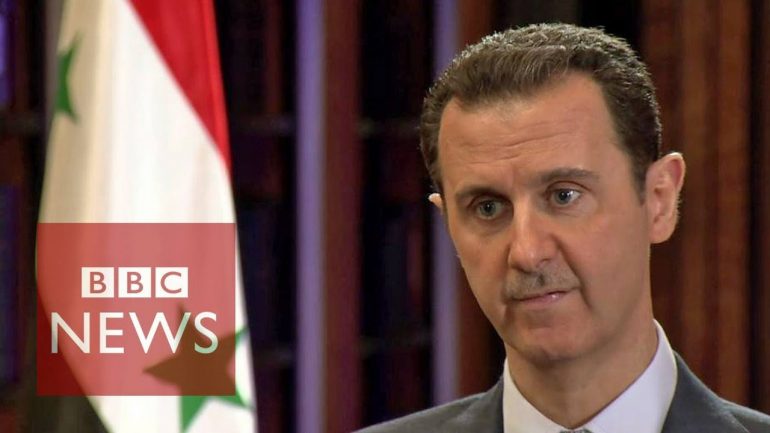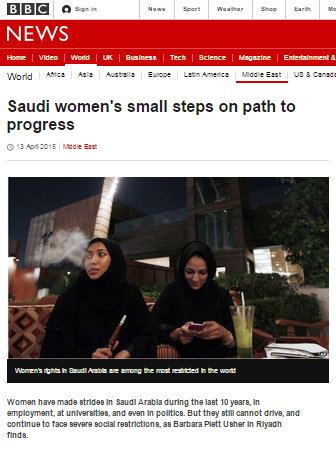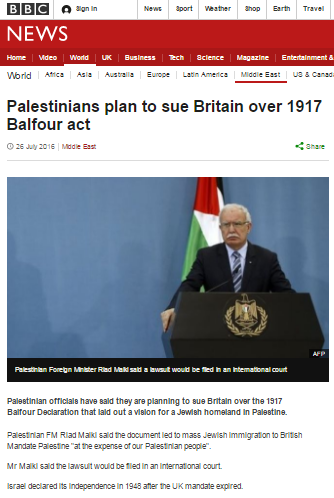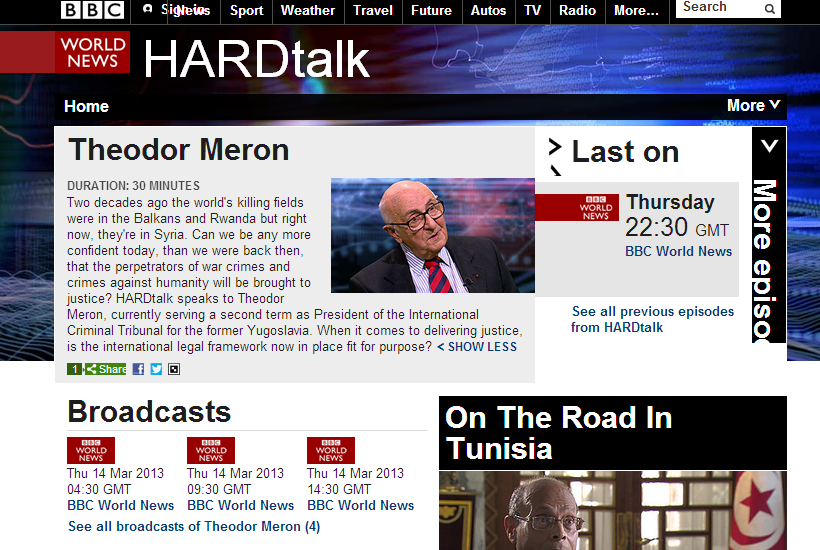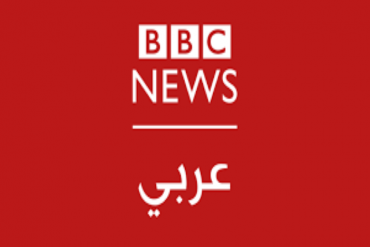Considerable efforts were put into the promotion of Jeremy Bowen’s interview with Bashar al Assad across all BBC platforms on February 10th, including this Tweet from the BBC Middle East editor himself:
Those who watch the interview may well be left the impression that there was in fact no need for the Syrian regime to censor any of Bowen’s questions seeing as the words ‘Iran’ and ‘Hizballah’ did not appear in any of them. Similarly, discussion of challenging topics – such as to what extent the approach adopted by Western powers including the UK and the US in the late summer of 2013 in place of military intervention after the Syrian regime’s use of chemical weapons contributed to Assad’s survival – did not take place.
On the BBC News website the interview with Bashar al Assad was presented together with additional items of recommended reading. One of those articles was an arguably narcissistic round-up of traditional and social media reactions to the BBC’s broadcast complied by BBC Monitoring and titled “Syria conflict: Mixed reaction to President Assad’s BBC interview“. There BBC audiences were told: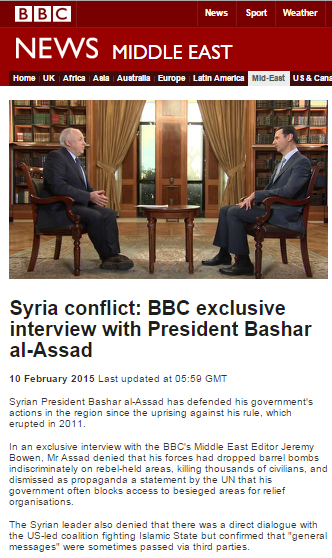
“And a pro-government Facebook user said: “The interview did not aim to shed any light on the future. Bowen merely served as a prosecutor building a case against a defendant, forgetting in the midst of his hate the fact that terrorists are funded by the Gulf and trained by Israel”.”
Despite having seen fit to highlight and amplify that comment, the BBC did not find it appropriate to clarify to readers that Israel has not played any part in training any of the assorted elements fighting against Syrian government forces.
Another accompanying article came from Jeremy Bowen: a written summary of the interview with added commentary in which Bowen claims “I tried to put to him some of the hard points that have been on peoples’ minds” and goes on to speculate:
“The fact that Mr Assad has started giving interviews again to foreign broadcasters must be a sign that he is feeling more secure.”
In fact, Bashar al Assad never stopped giving interviews to the foreign media – as his own website shows – and the BBC’s interview is rather less “exclusive” than the corporation makes out. Interestingly, Bowen refrains from discussing the reasoning behind the BBC’s decision to provide a platform for amplification of Assad’s entirely predictable propaganda.
Visitors to the BBC News website were also offered yet another summary of the filmed interview under the headline “Assad says Syria is informed on anti-IS air campaign” – which was opened to comments from the public. Among those which passed BBC moderation were several off-topic comments promoting inaccurate claims and conspiracy theories concerning Israel.
Despite the considerable hype engineered by the BBC around this interview, its value in enhancing audience’s understanding of the issue of the civil war in Syria is minimal, with little said by Assad which could not be found on official Syrian government media channels and its avoidance of discussion of Iran and Hizballah meaning that no attempt was made to inform audiences of the bigger regional picture.
The fact that the BBC allowed its plethora of ‘related articles’ to become in some cases a medium for amplification of inaccurate claims and conspiracy theories about Israel is of course worthy of note.

